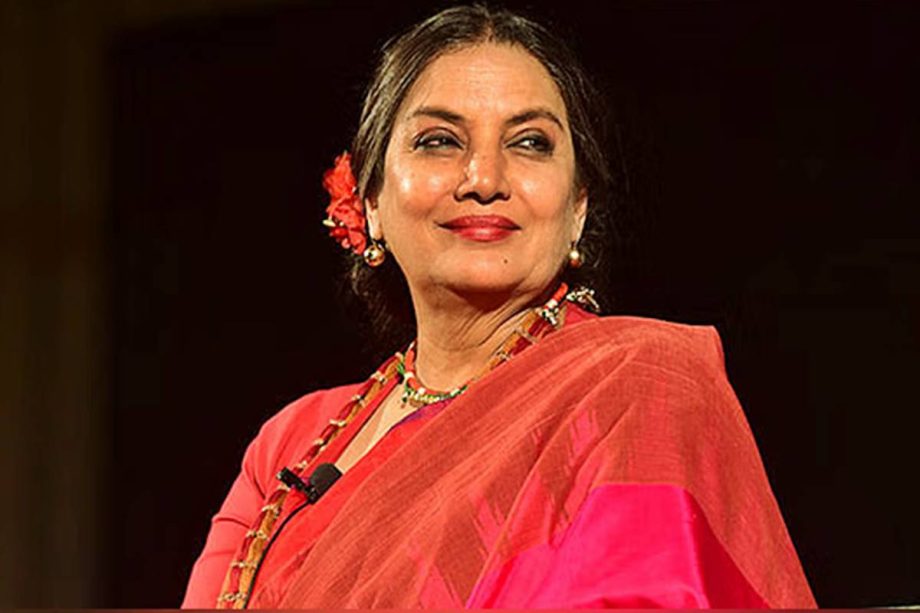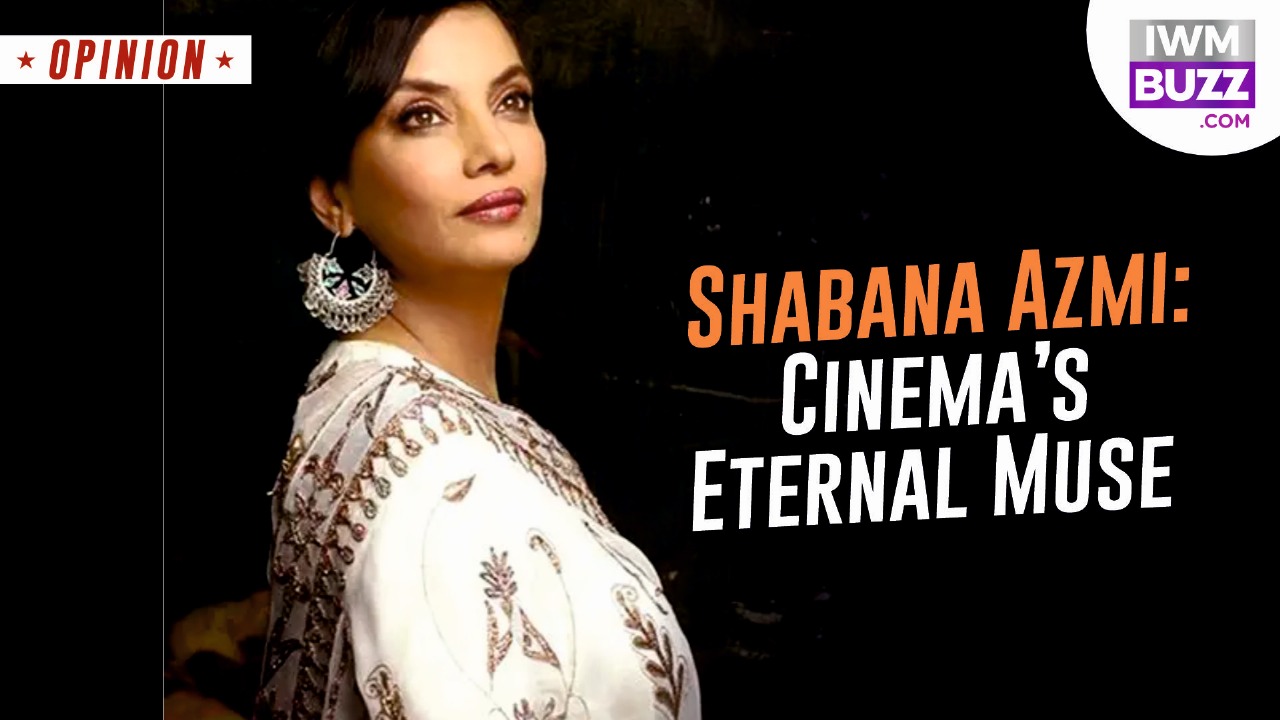Some actors leave behind performances. Others leave behind a way of thinking. Shabana Azmi, somehow, has managed to do both, and continues to do so.
Even if you’ve never followed her work closely, chances are you’ve felt her presence. Maybe it was a scene you stumbled on while flipping channels, a quiet woman at the centre of Khandhar, eyes full of loss.
Or a voice you heard in an interview, speaking calmly but firmly about women’s rights, secularism, or the responsibilities of art.
Unlike many stars of her generation who’ve chosen the comfort of retreat, Azmi is still out there, acting, speaking, questioning. At seventy, she’s as visible and engaged as ever. Not in a forced, performative way. But with the kind of grace that says: I’m still here, and I still have something to say.

Her journey began in 1974 with Ankur. First film, first National Award. That’s rare. But what’s even rarer is how she followed it, not with fame-hunting roles, but with characters that carried depth. In Namkeen, Shatranj Ke Khiladi, Paar, she brought women to life who didn’t beg for sympathy, but quietly earned it. You didn’t just watch her characters, you understood them. You felt for them, even after the film ended.
And maybe that’s her magic. Azmi doesn’t shout to be heard. Her strength is quieter. It lives in the stillness of her expressions, in the honesty of her eyes, in the silences that say more than words. Satyajit Ray once called her one of the finest dramatic actresses in the country, and coming from him, that wasn’t flattery. It was a fact.
But acting is only one part of her story.
To understand Shabana Azmi, it is essential to know where she comes from. Her father, Kaifi Azmi, was a revolutionary poet. Her mother, Shaukat Azmi, is a respected theatre actress. Their home wasn’t just full of art, it was full of ideals. Protest, performance, poetry, it all blended into one language. And that’s the language Shabana speaks to this day.
She doesn’t believe in separating her personal life from her politics, or her politics from her art. For her, it’s all connected. She’s a self-declared feminist, not a vague, polite “humanist,” but a feminist in the clearest sense. Because for her, visibility matters. Equity matters. Women matter, and their stories deserve the centre stage.
She’s also one of the rare few who make supporting roles unforgettable. Not because she demands attention, but because she fills every frame with intent. Whether it’s a lead or a side role, when she’s on screen, the emotional temperature shifts.
Shabana Azmi doesn’t just belong to cinema’s past. She belongs to its conscience. Her voice still rings clear, her performances still linger, and her relevance has never been tied to age.
Some people grow quieter with time. She grows sharper.
And if you ever wondered whether art can still carry meaning, still start conversations, still stir something deep, watch a Shabana Azmi film. Listen to her speak. You’ll have your answer.

